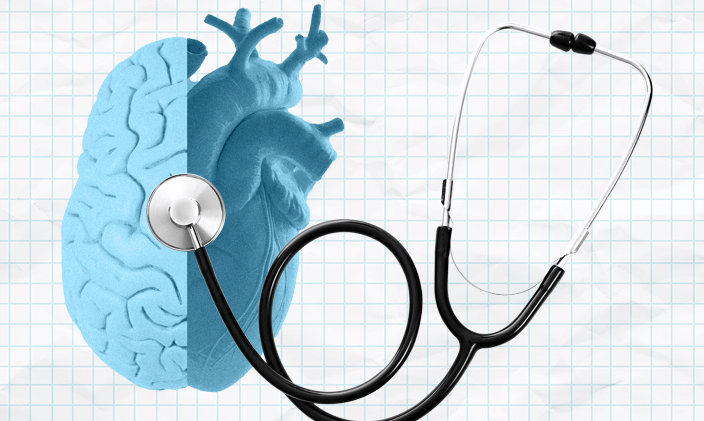A list of essential nursing skills

Written by Michael Feder

This article was reviewed by Raelene Brooks, Dean, College of Nursing.

Registered nurses use countless skills to perform their duties throughout the workday. They might perform a general assessment starting with vital signs and continuing on to symptoms or signs of distress — and that’s just in the first few minutes of a patient walking into a room.
Nurses also demonstrate various interpersonal skills when communicating with peers, doctors, patients and patients’ loved ones in the waiting room. Ultimately, they need both hard skills and soft skills to succeed in the nursing profession.
Hard and soft skills are essential to become a registered nurse. Here, we’ll look at the differences between these two types of nursing skills and how they’re used. After all, it’s by balancing hard and soft skills that you can become a well-rounded nurse who is an asset in any healthcare setting.
Nurse skills: Hard vs. soft
When it comes to nursing skills, most professionals use a combination of hard skills and soft skills in their careers. Generally speaking, hard skills are technical, often industry-specific knowledge people acquire to perform in a given role. Soft skills refer to how you interact with others and manage yourself during the day. These can include interpersonal skills, time management and flexibility.
Nurses must hone their hard and soft skills to provide quality patient care. One of the best ways to understand the value of both is to look at examples of the skills nurses use each day. And those can vary depending on nurses’ specialization and where they work.
Raelene Brooks, PhD, RN, serves as the dean of the College of Nursing at University of Phoenix, and her clinical experience includes geriatric care, nursing research and critical care. During her career, she has developed and honed a wide range of skills.
Brooks shares her story:

Raelene Brooks
Dean, College of Nursing
"Nurses are the backbone of healthcare and often it can be frustrating for nurses when providing patient teaching on diet, lifestyle and medication administration and the patient is not receiving and processing the information. As a critical care [trauma and ICU] nurse, my patients were often comatose and intubated and unable to tell me how they are feeling. I depended on diagnostic lab test interpretation, EKG, vital signs and sharp assessment skills to determine whether or not my 12-hour shift was going to be a stable night or a night when I needed to have the code blue crash cart outside of the room. Assessment of the psychological, emotional and physical status within the existing environment is an important skill that I have learned as a registered nurse. Patients and their families have to be ready to hear what the nurse has to say, and if the nurse does not have keen assessment skills of the patient’s readiness to learn, then the message can be lost in translation.
Evidence-based practice is a skill that has helped me to understand why competencies and procedures are essential to provide the best possible outcomes for my patients. For example, methylene blue dye was used in nursing practice to color the nutritional tube feeding. Tube feeding is used when a patient is incapable of consuming food the normal way for a variety of critical health conditions. The blue dye was thought to indicate lung aspiration if the patient was coughing up blue phlegm. Research has shown that the blue dye was associated with increased risk of seizure activity. Without evidence-based practice research and guidelines, nursing practice is placing patient safety at risk.
Another example is when I started practicing in the ICU in the early 1990s and IV potassium chloride was readily available on an open shelf for nurses to reconstitute [mix] into the IV. Insulin was another readily available medication in the medication room refrigerator. Research has shown that IV potassium chloride and insulin are two high drugs associated with medication errors. As a 17-year practicing night-shift critical care nurse, I know firsthand how easy it is to make an error when you are tired or in a rush because the patient is decompensating and crashing.
I was a young mom of a 2-year-old toddler, going to school by day, and after working three-night shifts in a row, I made my first medication error. For every unit of blood administered, two registered nurses must sign off the blood to verify the information on the patient and the donor blood type before hanging the blood to ensure safety. Usually, the two nurses consist of the primary nurse taking care of the patient and the charge nurse. One night, during a trauma, I administered eight units of blood to a 16-year-old female bleeding out after having a traumatic chest, liver and spleen injury from a motor vehicle accident. Out of the eight units of blood I administered that night, I forgot to check two units with another registered nurse. There was a missing signature on blood administration check forms. I was lucky that night to have 10 units of blood from the same donor so there was less risk of blood incompatibility. Integrity in nursing is everything. I let the charge nurse know that I failed to have two of the units checked by him. He said, ‘Oh, Rae, I will sign the form for you.’ I replied to my charge nurse, ‘That’s not the point.’ I felt that this type of acuity patient needed the care and oversight of two nurses.
I walked into my manager’s office in the morning and wrote myself up. I wrote an incident report citing my medication error of hanging two units of unchecked blood and that two nurses should have been assigned to the high-acuity patient. Years later, because of evidence-based practice research, California legislation passed a law that cites a mandated 1:1 [patient-to-nurse ratio] in the ICU and no more than 2:1 ratio with the exception of special circumstances."
Hard skills for nurses
When it comes to nursing skills, numerous examples of hard skills are used to complete day-to-day tasks of patient care. For instance, when performing a patient intake, the nurse conducts a physical assessment and takes both a medical and social history.
Nursing is a highly technical profession, which is why many courses and training opportunities focus on hard skills. Nursing can require the following hard skills:
- Clinical skills: Clinical procedures can require nurses to give injections, dress wounds and assist with examinations.
- Patient assessment: Nurses need to assess patients’ conditions by monitoring vital signs, interviewing patients and performing examinations.
- Administering medication: Properly dispensing medication, calculating dosages and understanding drug interactions are key.
- Use of medical equipment: Nurses must know how to use a wide range of medical equipment, from basic tools like thermometers to complex machines like ventilators and IVs.
- CPR and first aid: Often first responders, nurses need to be skilled and confident in triage treatments like CPR and first aid.
- Electronic health record (EHR) management: Digitization of healthcare means nurses must be proficient at using EHR systems to document patient information.
- Infection control: Nurses need to understand infection control protocols to prevent the spread of diseases in healthcare settings.
- Patient education: Nurses should be able to educate patients and families about disease management, care after discharge and lifestyle changes.
How to improve hard skills as a nurse
Education is one clear pathway to develop and hone your nursing skills, especially your hard skills, but there are other ways too. These include on-the-job training and day-to-day work experience. For example, facing problems, thinking on your feet and finding solutions will help boost your skill set.
If you’re looking to formalize your hard skills, talk to your manager about career development
options and ways to grow your skill set within your organization.
Soft skills for nurses
While hard skills allow nurses to complete their daily tasks, soft skills help them create better experiences for everyone they encounter. Some of the most commonly used soft skills in nursing are:
- Clear communication: It is crucial to accurately share patient information with doctors and other health professionals. Clear communication also helps nurses explain medical terms to patients and ensure they understand their condition and treatment plans.
- Positive attitude: An upbeat attitude makes a world of difference in patient care. It can mitigate anxiety and reassure patients and their families as they learn about conditions and treatments. Additionally, it helps nurses cope with the stress and challenges of their work.
- Teamwork: Effective teamwork ensures coordination of patient care. Nurses work with doctors, pharmacists and other providers. Teamwork skills can foster efficient and safe patient care.
- Problem-solving: Nurses need to make quick decisions in unexpected situations. Effective problem-solving skills help nurses analyze situations, consider solutions and choose an appropriate action to ensure patient safety and well-being.
- Leadership: Nurses who want to grow in their careers — such as becoming charge nurses or directors of nursing — should cultivate leadership skills, which are essential for supervising aides and other staff. Such skills help ensure team members understand their roles and responsibilities, which might lead to better patient care.
- Empathy: Empathy and emotional intelligence allow nurses to understand their patients’ feelings. This is key to providing compassionate care. It also helps build trust with patients, which can make them more receptive to care and treatment.
What do these skills look like in practice?
A nurse might give a patient an injection (a hard skill) or medication but use compassion and communication skills to make it easier for them. If a patient fears needles, the nurse can pick up on these cues using emotional intelligence. The nurse might then distract the patient with a funny story or empathize with how much they hate needles too. The patient might feel better about the experience because the nurse connected with them emotionally.
Additionally, nurses are usually tasked with charting and clinical documentation. This requires being detail-oriented. Also, nurses communicate when providing patient care and speaking to patients about managing their diagnoses.
Throughout your nursing career, your soft skills should evolve. You will likely need to practice active listening to learn and grow, and you might hone your leadership skills and conflict-resolution abilities as you advance in your career and step into a management role. A well-balanced mix of these nursing skills can help you in your profession.
How to improve soft skills as a nurse
Soft skills can be harder to teach in a formal education program. Often, people acquire them through experience, such as working with larger teams, collaborating or being put in situations that require management or critical thinking.
At University of Phoenix, soft skills including compassion in population health and professionalism in nursing and critical thinking are taught in the Registered Nurse to Bachelor of Science in Nursing program. Should you feel you need extra guidance in soft skills, you can speak with your course instructor.
Brooks elaborates: “In today’s competitive job market, skills matter as much as your degree, which is why University of Phoenix is introducing digital badges for select courses. Gain career-relevant skills sought after by employers that can be put to work right away. So you can start showcasing in-demand skills before even graduating from your program.
“It’s also possible to improve your soft skills through experience or resources like books, videos and podcasts. Consider keeping a journal to identify your thoughts and feelings throughout the day. Practice taking a step back before reacting, so you can ensure you’re handling situations appropriately. Try to place yourself in the shoes of patients, peers and others around you. Improving your soft skills may take time, but the investment should help you navigate certain work experiences better.
“A great nurse will likely use both soft and hard skills each day. They work to improve their technical know-how while developing empathy and clear communication. Investing in both skill sets prepares you to enjoy a long, successful nursing career.”
Develop your nursing skills at University of Phoenix
UOPX offers online programs for licensed RNs seeking to learn additional nursing skills that can guide them in their careers. These nursing programs are ideal for individuals who need flexible courses that fit in with their busy lives. Many students also appreciate the fixed tuition prices with no hidden fees.
Visit UOPX to find your program.

ABOUT THE AUTHOR
A graduate of Johns Hopkins University and its Writing Seminars program and winner of the Stephen A. Dixon Literary Prize, Michael Feder brings an eye for detail and a passion for research to every article he writes. His academic and professional background includes experience in marketing, content development, script writing and SEO. Today, he works as a multimedia specialist at University of Phoenix where he covers a variety of topics ranging from healthcare to IT.

ABOUT THE REVIEWER
Dr. Raelene Brooks, dean of the College of Nursing, has been a registered nurse for more than 25 years and practiced extensively in the areas of ICU, trauma and critical care. Her publications include a focus on nursing education, critical care, and organizational wellness and engagement. She is a leader in creating, guiding and launching innovative curriculum.
This article has been vetted by University of Phoenix's editorial advisory committee.
Read more about our editorial process.
Read more articles like this:


